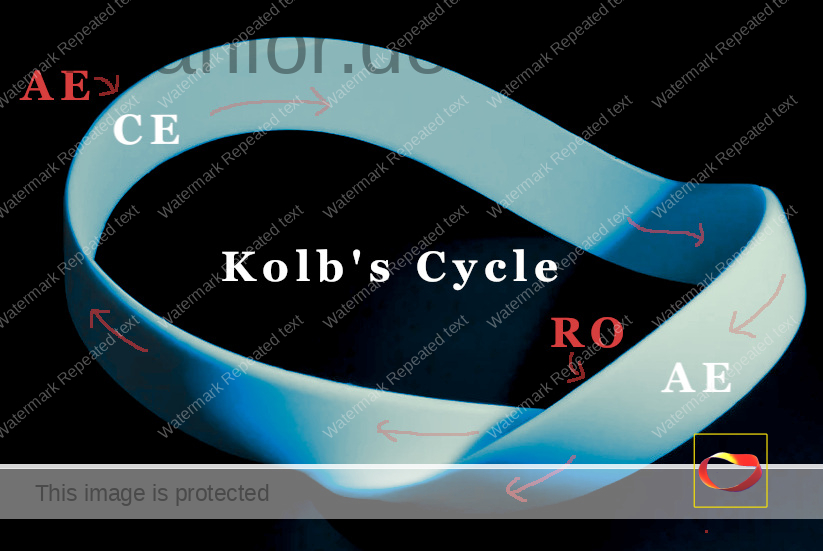Phelan, A.M. (2005). On Discernment: The Wisdom of Practice and the Practice of Wisdom in Teacher Education. In G.F. Hoban (Ed.), The Missing Links in Teacher Education Design. Self Study of Teaching and Teacher Education Practices, vol 1 (pp. 57-74). Springer. https://doi.org/10.1007/1-4020-3346-X_4
The Master of Teaching (MT) Program at the University of Calgary
- “The MT Program is inquiry-based, learner-focused and field-oriented. Grounded in the Aristotelian notion of phronesis or practical wisdom, the program makes the relationship between discernment, imagination and wise practice central to teacher education.”
- “The Blue Book” (1996) which recommended that any reform to the teacher education program be inquiry-based, learner-focused and field-oriented.
- There was some sense that teaching should be understood as a form of experience that is contextual, laden with values, and characterized as intentional and intuitive action. As such, a different relationship between theory and practice was called for”
What does the practice of teaching entail?
What kind of learning experiences would prepare teachers to teach well?
“Knowledge, Skills and Attributes (KSAs)”
- “In this manner, the program is recursive; its helical [ﻼF – ∞] curriculum allows student teachers to revisit areas of study, each time deepening and expanding their understanding.”
Practicum: “Each year, field experience involves a long-term (one-year) commitment to a school site. A cohort of students is assigned to a school where they spend two days each week in semesters 1, 2, and 4 and four days a week during semester 3.
Discernment speaks to a teacher’s capacity to see the significance of a situation, to imagine various possibilities for action and to judge ethically how one ought to act on any given occasion.
- “In the MT Program, developing the capacity for discernment takes the form of a reflective process wherein prospective teachers narrate and reflect, in written and other forms, about their direct and indirect experience in practice settings and in case studies. Those reflections on experience are characterized by three conceptual moments:
- (i) the play of thought between concrete particulars and abstract generalizations (Phelan, 2001);
- (ii) imaginative rehearsal of action (Dewey, 1985);and,
- (iii) the ethical claim of partiality (Nussbaum, 1986).”

- “For to be able to choose a form of behaviour appropriate for the situation, one must above all be able to perceive and discriminate the relevant details. This cannot be transmitted in some general, abstract form…”
- “field experience is often seen as providing access to the real (Field, 1999). In the MT Program, field experience is viewed as a site for cultivating perception, or learning to see, NOT as a site in which to acquire immediate proficiency in a so-called “real” world. As such, inquiry in the MT Program refers to the reconstruction of experience (Dewey, 1934).”
- “The reconstruction process requires prospective teachers to first learn how to make intelligent reports of what happens to them as they observe, prepare for and engage in teaching (Nussbaum, 1990). Creating an intelligent report of experience involves prioritizing the particular by writing narratives of experience and then engaging in a continual search and re-search for the significance of the experience in light of reading and in the context of conversations with one’s self and others.”

Attunement replaces application as the primary relationship between theory and practice
- “They move in a spiraling fashion [ﻼF – ∞] from their initial, individual response into a conversation with peers, classroom teachers and pupils, the research literature, and popular culture.”
By engaging student teachers in extensive deliberation about practice, the hope is that they will begin to understand that teaching can never be a simple matter of following a procedure or method as one follows a recipe in cooking; it is always a matter of perception (Risser, 1997) and experimentation
[T]he living relation between abstract and concrete is maintained by means of experimentation ….Inquiry always involves abstraction, since it always involves hypotheses that articulate alternative courses of action (Hickman, 1998, p. 174).
“…the notion that teaching is an intentional, situational act. The non-repeatability of situations, however, means that a teacher is always improvising . . . not simply going back to the textbook but by discerning the details of the particular situation. The element of risk is always present simply because teachers’ intentions have to bump up against the intentions of multiple others—students, colleagues, policy-makers. While we can hope that our actions will strike a chord in others who will carry it forward to some completion, we can never be certain if our pedagogical intentions will be played out, however many times they might have done so in the past (Dunne, 1997). The unpredictability of action is only surmounted by its irreversibility; there is no going back! Flexibility, improvisation and a clear understanding of the contingencies of any particular situation, therefore, characterize practical knowledge (Dunne, 1997).”
INQUIRY: “The intent is to have students set out to understand the dynamic relationship between current research literature (the “oughts” and the “shoulds” of the various disciplines) and the lived realities of teachers and students in their various learning contexts.
- “Imaginative rehearsal requires community of inquiry. There can be no deliberation without others; the intellectual stimulation and moral challenge that others present to one’s ideas are at the core of practical wisdom.” [Shulman]
- “At the end of the program, in the form of an Exit Presentation, students are asked to make a declaration to their peers about what they believe the profession calls forth in them. Each student develops “a metaphoric representation that focuses on the moral and ethical imperatives inherent in becoming and being an educator” (Faculty of Education, 2002, p. 59).” [Ask Anne]
- “In the context of deliberation, student teachers encounter multiple interpretations of any given situation and they learn that not only are there no interpretations in general, but that interpretations are always situational. Every interpretation is an event in itself, involving a dialectical relationship between their fore-understandings and values and the “text” (practice) [Ask Anne] that presents itself.”
- ﻼF: Practice as “text” to analyse and interpret
- “To this end, students are grouped heterogeneously across disciplines and routes (elementary combined with secondary) for part of the program. As a result, students become more conscious about how their particular disciplinary background has shaped their way of knowing the world, the normative categories that they use to make sense of their experience of self, other and the world generally”
- “Encountering difference across the disciplinary frames allows students to begin to see the disciplines as living frameworks for understanding rooted in different languages of practice. In addition students also begin to recognize the existence of diverse conceptualizations of reality within any one discipline.”
- “Cognitive theory and behaviourism are examples in psychology.”
- Cognitive theories [Piaget] explain how behavior changes as a result of people’s perception, transformation, processing, storage, and retrieval of information in contrast to behaviorist theories [Watson; Skinner;{Pavlov}] that put emphasis only on observable behavior of individuals.
There is a certain emotional labour that is required
if student teachers are to understand the import of their values.
- “When they try to implement practices such as inquiry-based learning they find their desires interrupted by students, teachers and institutional policies that emphasize curriculum coverage and standardized tests. The discomfort student teachers feel is critical, however, in developing their sense of how, as university students, they enact and embody dominant values and assumptions about teaching.
- Moreover, in the context of field experiences, they begin to develop a sense of the limits that are often placed on teachers when they try to counter those dominant values. While prospective teachers often express a feeling of being overwhelmed by some of these realizations, it is the emotional labour that results which enables them to question cherished beliefs and assumptions and to take responsibility and action. However, this means that teacher educators and classroom teachers have to allow student teachers to feel overwhelmed, at least temporarily.”
“Adventure interrupts the customary course of events”
“Discernment is always more than knowing. It sometimes requires courage that enables a student teacher to persist in a truthful though otherwise unprofitable or unpopular direction (Dunne & Pendlebury, 2002).It may require a sobriety that allows one to acknowledge one’s limitations and yet prevents one from being easily swayed by impulse or first impressions (Dunne & Pendlebury, 2002).
- It requires patience in sticking with a problem, a sense of balance that keeps both details and “big picture” in focus. It requires a letting go of instrumentality and a willingness to relinquish control and certainty of outcomes.
- In a world that desperately wants to be sure of itself, practical wisdom offers no guarantees. However, it does allow us to recover the ontological dimension of teaching and learning to teach by reintroducing questions such as: Who am I? Where do I fit? What can we best live by and live together as social beings in our schools (Nussbaum, 1990)? Teacher educators that invite student teachers to engage in this manner “. . . seem to proffer only their dreams for interpretation, and then no guarantee. They are interested in mistakes, the accidents, the detours, and the unintelligibilities of identities ….”(Britzman, 1998, p. 60).”
“It has been exceedingly challenging to sustain the MT Program during recent years.”
- “..some have experienced an explicit statement of program philosophy as an infringement on academic freedom. To others, the historical preoccupation with technique in the form of methods courses has overshadowed the program’s attempt to take up practice interpretively.”
Phelan, A. M. (2005). A Fall from (Someone Else’s) Certainty: Recovering Practical Wisdom in Teacher Education. Canadian Journal of Education / Revue Canadienne de l’éducation, 28(3), 339. https://doi.org/10.2307/4126474
- The case study presented illustrates one teacher candidate’s struggle to let go of a conception of knowledge as generalizable formulae that can be readily applied in practice and to become more open to practice itself as a site of learning”
- “Teacher educators can nurture such openness by helping aspiring teachers to appreciate the fragility of knowledge, the epistemological value of feeling, and the priority of the particular, in teaching. In so doing, educators recover practical wisdom as the beginning and end-in-view of teacher education”
“Lily was a student in a two-year, post-degree,
inquiry-based, teacher education program.’
- “Inquiry-based teacher education differs from the applied-science model of teacher education that has predominated in universities during the twentieth century (Schon). In this model, practice has often been seen as “merely an expression of embarrassment at the deplorable but soon overcome condition of incomplete theory” (Bubner). As such, there has been a strong tendency to disembed knowledge from the immediacy and idiosyncrasy of particular teaching situations and from the experience”
- “In this “practitioner-proof” view (Dunne & Pendlebury), teacher education is premised on the understanding that the sources of teacher excellence lie in certain knowledge systems that have been sedimented from the research literature (Van Manen). There are the studies of effective teacher behaviour reviewed by Brophy and Good, or the categories of the knowledge base of teaching outlined by Shulman”
- “I conclude that teacher educators may need to help prospective teachers reconsider their relationship to knowledge and to appreciate the role of experience and emotion in teaching and learning to teach through inquiry.”
A phronetic approach to Teacher Inquiry
- “Teaching is a normative pedagogical activity: teachers are required to operate in ever-changing situations and to be discerning in their interactions with children about what is appropriate and what is not and what is good and what is not (Van Mannen)”
- “…, inquiry-based teacher education rejects the notion of a predetermined set of competencies or a discrete set of teaching strategies that can be delivered to prospective teachers in anticipation of practice. In keeping with a strong hermeneutic conception of practice represented by such philsophers as Jurgen Habermas, HasGeorg Gadamer, Paul Ricouer, and Charles Taylor (McEwan, 1995), inquiry-based teacher education embraces the importance of experience and its interpretation”
- “…it is not that inquiry has no generalizable power for the teacher candidates. The hope is that each experience that undergoes reconsideration and reconstruction has an epiphanic power: it not only discloses an exemplary significance in the original setting but it also illuminates other similar settings (Dunne & Pendlebury). The process of reconstruction is a cyclical one because it has no beginning and no final end. “New understandings impinge on old practices and become, to varying degrees, part of the language that constitutes the new practice” of the teacher candidate (McEwan) ∞
- “A case study design, with its emphasis on the particular and the contextual, fits well with the theoretical frame of phronesis (Flyvbjerg)
- “Through observation, conversation and interpretation, I tried to reach an understanding of Lily’s experiences. In as far as possible, program activities (naturally occurring) shaped data collection and took place chronologically over four semesters.”
- “Lily’s story line became learning to let go of her faith in the viability of abstract knowledge as a source of teaching excellence”
- Wisely, her partner teacher noted and responded to Lily’s anxiety by explaining that “One of the hardest things about being a teacher is that you have to act in the moment.” However, rather than calm Lily, the knowledge that one cannot know in advance or in general how one ought to respond in the particular fuelled her anxiety”
I found that if I paused for a minute and tried to get my thought, they’re gone. So I felt a lot of pressure to keep talking all the time. And I found that I’d be talking when I had nothing to say but I didn’t want to stop talking. I don’t know. But I also didn’t have a lot to say. So it really didn’t work out that well all the time. (Interview, Semester 3)
On the other hand, she reached the realization that she had not really been learning all along. Rather she had been consuming other people’s certainties, with a view to a grade. When I came to school here I did very well. But that was all; it wasn’t me. It was me learning what Dr. B. had to say in his book. So I know what Dr. B … thinks about all these things. And I know what Dr. A. thinks about all of these things, and I know what this person thinks about that. But I didn’t really know what I thought about it. And I never really had to. Because I could still get an A. And no one ever really brought it up (Interview, Semester 2)
Teacher candidates must learn to recognize that generalizable knowledge is fragile in the face of practice.
- It is children perhaps who can best teach prospective teachers that surprise and difference are fundamental to teaching. With this insight, attunement can begin to replace application as the primary relationship between theory and practice. This replacement occurs over time and is fraught with tension as prospective teachers are confronted by the limitations imposed by inexperience.
- That prospective teachers experience heightened anxiety during field experience is important. Lily helps teacher educators to recognize what it might mean for prospective teachers “to respond vigorously with senses and emotions before the new . .. and to be bewildered – to wait and float and be actively passive” (Nussbaum) {JA}
- Any effort on the part of a partner teacher or faculty advisor to contain emotional distress may hamper students’ growing perception of what it means to teach well. To experience strong emotions is to undergo something, to have an experience of something. Making experience less painful may merely offer prospective teachers the possibility of recognition. Recognition is perception arrested before it has a chance to develop freely (Dewey, 1934). Wisely, Laurie did not rush to manage Lily’s experience of learning to teach, to alleviate the suffering”
- To experience emotion requires incubation – time-out from conscious reflection on experience (Phelan). “Incubation goes on until what is conceived is brought forth and is rendered perceptible as part of the common world” (Dewey). Perception, then, is the endowment of meaning with personal significance, rather than the application of some predetermined, intellectual meaning. The significance of experience has to be felt by the prospective teachers and worked out over time (Phelan)
- “…teaching involves the mediation of the universal and the particular; that is, a back-and-forth movement between the specifics of a situation and more general understandings of learning and teaching”
“That you never give up on somebody,” Lily concluded [ﻼF; context?]
IN CLOSING
- Learning to be practically wise begins with desire, a yearning to be something other than who one is (Garrison). Pursuing that desire may involve letting go, losing one’s balance, and losing certainty (even someone else’s). Accepting the fragility of knowledge. Feeling overwhelmed. Engaging in a play of thought. [ﻼF: Wilde]

